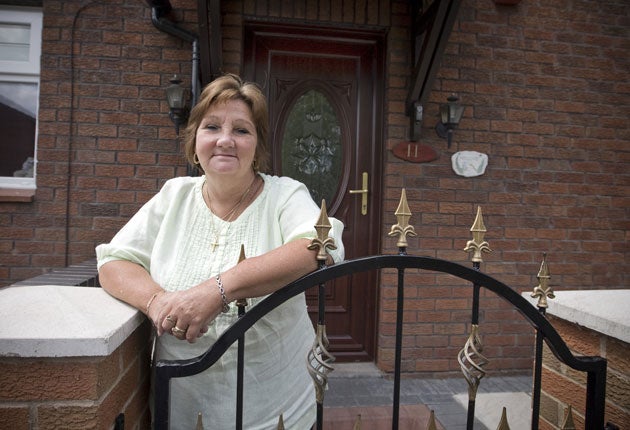Foster families hit by coalition housing reforms
Withdrawal of benefit for spare bedrooms could push claimants 'into poverty' say critics

Your support helps us to tell the story
From reproductive rights to climate change to Big Tech, The Independent is on the ground when the story is developing. Whether it's investigating the financials of Elon Musk's pro-Trump PAC or producing our latest documentary, 'The A Word', which shines a light on the American women fighting for reproductive rights, we know how important it is to parse out the facts from the messaging.
At such a critical moment in US history, we need reporters on the ground. Your donation allows us to keep sending journalists to speak to both sides of the story.
The Independent is trusted by Americans across the entire political spectrum. And unlike many other quality news outlets, we choose not to lock Americans out of our reporting and analysis with paywalls. We believe quality journalism should be available to everyone, paid for by those who can afford it.
Your support makes all the difference.Foster carers risk losing up to £700 a year in housing benefit under coalition cuts, which, campaigners claim, will deter families from housing vulnerable children.
Under new rules drawn up by ministers, families in receipt of housing benefit who have properties with spare bedrooms will be penalised – losing the proportion of benefit that applies to the spare rooms. The measure is designed to encourage social housing tenants to downsize, freeing up properties for larger families. However, it means that bedrooms used by foster children will also be deemed surplus and ineligible for financial support. The Department for Work and Pensions (DWP) insists the change will be fairer since payments made to foster families include a housing element.
The plans will be a further blow to foster family incomes already hit by rising food, fuel and travel costs.
The Fostering Network said that carers living in social housing should not have to subsidise the housing costs of children "out of their own pockets". Its chief executive, Robert Tapsfield, said: "Fostered children need to have their own bedrooms in almost all circumstances, so these proposals will put foster carers in social housing under real financial pressure."
He added: "These plans will also make it even more difficult for families in social housing to become foster carers at a time when we urgently need more people to come forward." It is estimated that an extra 10,000 foster carers are needed in the UK.
Foster family allowances, depending on a child's age and local authority, can range from £125 a week for babies to more than £250 for a 16- to 18-year-old in London. Under the housing benefit changes, a claimant with one "spare room" is expected to receive a 13 per cent cut, with the payment reduced by 23 per cent for two or more spare rooms. Claimants, on average, could lose £676 a year.
The National Housing Federation (NHF) estimates 670,000 people may be affected by the clampdown on under-occupancy. According to official statistics, five million people in England are on the social housing waiting list but almost one million spare bedrooms are paid for by housing benefit.
The NHF chief executive, David Orr, said: "Ministers have failed to think through the potentially disastrous implications of imposing an under-occupation penalty on so many different groups of tenants. Under-occupation in the social housing sector should be tackled. But slashing peoples' housing benefit and pushing them into poverty is not the answer."
Yvonne Crook and her husband, Allan, foster her three grandchildren, and also provide respite care and emergency placements for other children, in their three-bedroom home in St Helens. She condemned the plans: "If the children find out, they will think this is not a home for me, it's not my bedroom. This money that they are planning to take is spent on the children. These children have been neglected and abused in the past, they don't need to be short of anything in their lives now."
The DWP insisted foster carers do an "important job" but their personal allowance "already takes into account housing needs, and any income they earn over and above the benefit they receive is completely disregarded".
The changes are contained in the Welfare Reform Bill, which is expected to complete its passage through the Commons tomorrow. However, many of the benefit changes proposed by Iain Duncan Smith, the Work and Pensions Secretary, remain controversial.
Last week, David Cameron was criticised by Lib Dem MPs over plans to increase the state pension age to 66 by 2020 – six years earlier than previously planned – and to accelerate the rate at which women's pension age is increased to 65 in line with men's. Senior Lib Dems are increasingly uneasy about a plan to cap all benefits at £26,000 per family.
Join our commenting forum
Join thought-provoking conversations, follow other Independent readers and see their replies
Comments